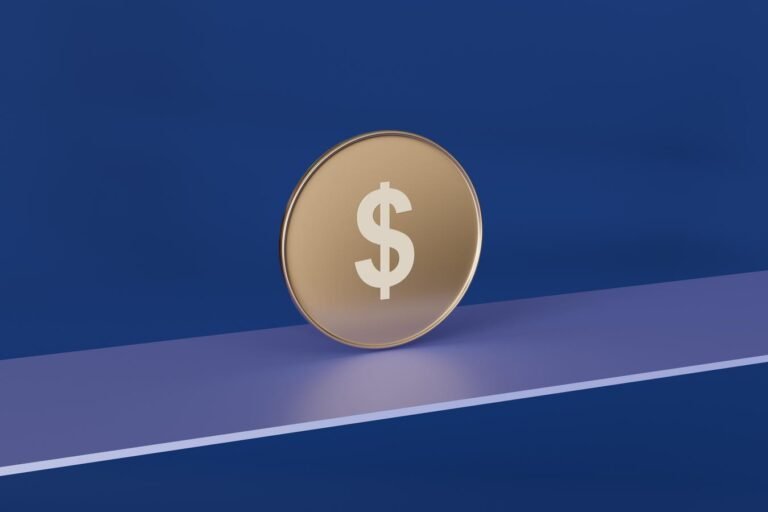Anthony Milewski is the founder of The Oregon Group and an influential figure in the mining, metals and energy industries.
Every era of finance is marked by a breakthrough that rewrites the rules. Index funds, introduced in the 1970s, gained traction in the 1980s by giving individual investors low-cost access to markets. The 1990s and 2000s saw the rise of exchange-traded funds (ETFs), offering liquidity and flexibility. More recently, crypto revealed the possibility—and pitfalls—of decentralized finance. Now, another inflection point is emerging: The tokenization of real-world assets (RWAs).
Nowhere will this innovation matter more than in commodities, the foundation of global supply chains and one of the most capital-hungry industries in the world. This is not just about digitization; it’s about building a new market infrastructure that could alter who controls capital, how it flows and who gets to participate.
From Gold Bars To Global Liquidity
Tokenization is “the process of representing a physical or financial asset digitally on a blockchain.” That token can then be traded, fractioned and settled in real time—much like a stock or ETF but without the limitations of traditional market hours or intermediaries. For commodities, this means taking what was once locked in private contracts—royalties, streams, barrels of oil, ounces of gold—and opening them up to broader investor participation.
Gold is already showing the way. Products like Tether Gold and PAX Gold have billions in circulation. While that’s a small fraction of the $27 trillion gold market, it’s proof that investors trust tokenized exposure to tangible assets. It’s also a signal: If investors are willing to hold digital gold, why not tokenized copper production, oil royalties or uranium streams?
Why This Matters Now
Three forces make commodities the natural testing ground for tokenization:
• Capital Intensity: Mining, oil and gas projects require billions in upfront financing. Traditional funding models are slow, expensive and dependent on a narrow set of institutions. Tokenization could tap a wider global pool of investors.
• Generational Demand: Younger investors, accustomed to fractional ownership of everything from stocks to sneakers, expect on-demand access. A $50 token tied to an oil well or lithium mine could make commodities relevant to an entirely new investor class.
• Global Competition: Nations from Singapore to the UAE are racing to build regulatory frameworks for tokenized markets. The jurisdiction that successfully integrates commodities into this system could establish itself as a hub for the next era of finance. In short, tokenization isn’t arriving in a vacuum—it’s colliding with structural pressures that demand new solutions.
Obstacles And Growing Pains
Skeptics are right to point out the challenges. Regulation in the U.S. remains fragmented. Custody solutions are still maturing. And the perception problem—associating blockchain with speculative crypto rather than institutional-grade infrastructure—is real. But finance follows a familiar adoption curve: Early skepticism, niche experimentation, then mass adoption once standards settle. ETFs faced the same trajectory in the 1990s. Mobile payments did, too. Today, both are ubiquitous.
What Executives And Boards Should Do
Tokenization may sound abstract, but leaders in resource industries—and beyond—should not dismiss it as hype. The following steps can position organizations to lead rather than lag:
• Educate: Boards should schedule briefings on tokenization trends. Understanding the basics today avoids costly missteps tomorrow.
• Scenario-Plan: CFOs should model how tokenized instruments—royalties, debt or offtake agreements—could diversify funding sources and reduce costs.
• Experiment: Pilot projects, even small ones, provide institutional learning. Partnering with credible platforms now creates an advantage if tokenization scales.
• Communicate: CEOs should be prepared to explain tokenization to investors and stakeholders. The narrative will matter as much as the mechanics in building trust.
Beyond Mining: The Wider Business Case
Although commodities may lead, the implications extend far beyond mining or energy. Manufacturers could use tokenized contracts to secure supply-chain reliability. Governments could use it to attract investment into critical infrastructure. Investors could gain access to exposures previously reserved for hedge funds or private equity.
Tokenization of commodities is, therefore, not just a financial innovation—it’s a strategic lever in a world where access to raw materials is increasingly tied to national security, industrial policy and climate transition goals.
The Leadership Imperative
For leaders, the question is simple: Do you want to shape this market or adapt to it after the fact? Waiting until tokenization is mainstream means giving up influence over the rules, platforms and standards that will govern it. Acting now, even experimentally, offers a seat at the table where those decisions are being made.
Finance has always rewarded those who anticipate change rather than resist it. The tokenization of commodities represents not just another product innovation but a structural shift in how markets work. The rails of global finance are being rewired. Leaders who engage early will not only future-proof their companies—they’ll help define the future of finance itself.
Forbes Business Council is the foremost growth and networking organization for business owners and leaders. Do I qualify?


